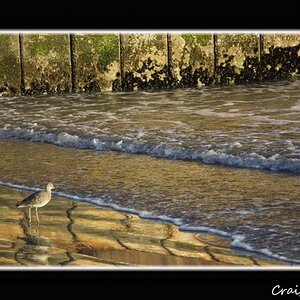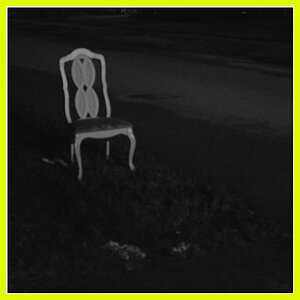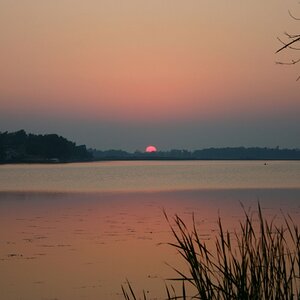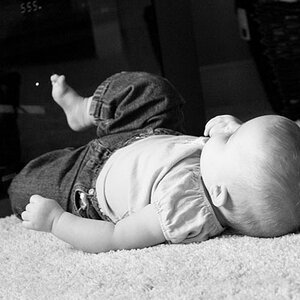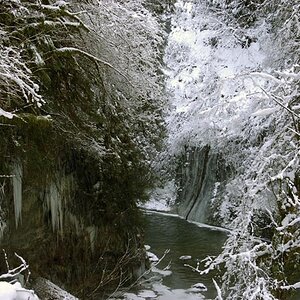Navigation
Install the app
How to install the app on iOS
Follow along with the video below to see how to install our site as a web app on your home screen.

Note: This feature currently requires accessing the site using the built-in Safari browser.
More options
You are using an out of date browser. It may not display this or other websites correctly.
You should upgrade or use an alternative browser.
You should upgrade or use an alternative browser.
You should Never use Any filters, except...
- Thread starter Jon_Are
- Start date
tsaraleksi
No longer a newbie, moving up!
- Joined
- Jun 12, 2007
- Messages
- 1,045
- Reaction score
- 0
- Location
- Greencastle Indiana
- Can others edit my Photos
- Photos NOT OK to edit
Using them at all times to 'protect' a lens is neither necessary, nor desireable from a technical point of view.
So how do you protect your lens from 'whatever' might suddenly happen to cause it grief?
I'm quite prepared to move to something other than UV but I'm certainly not going to wander arond with an £1800 lens (much morw for some wildlife/sports photographers) with it's front glass exposed to whatever the world has to offer.
Strangely I have never seen plain, optical glass, flat 'filters'.
Just as an FYI, super tele-photo lenses can't accept protective front filters-- they just aren't made. The front plate of glass on the lenses is generally just a flat piece of optical glass so that it can be replaced without tremendous cost should it catch a baseball in it or something.
However, it is worth noting that this kind of protective plate glass on super-telephotos is not particularly comparable to a UV filter for protection. Because a screw on filter will by needs be incredibly close to the lens element, anything that is substantially forceful enough to be something that needs protected against will be forceful enough to punch through the filter, which will introduce shards of glass into the equation, doing nothing but increasing the potential damage to your lens. In fact, if you drop your lens, the filter will provide no protection and may pose a hazard in that it will again force shards of glass across the lens element.
Lenses are not made of putty, and long gone are the days that the coatings were soft enough to be damaged by cleaning. If you have a lens hood on, it is hard to imagine what the UV filter is protecting you from.
*obviously this is excluding situations where there is flying crud or salt or whatever*
Josh66
Been spending a lot of time on here!
- Joined
- Oct 31, 2007
- Messages
- 14,593
- Reaction score
- 1,239
- Location
- Cedar Hill, Texas
- Can others edit my Photos
- Photos NOT OK to edit
all filters adversely affect the image, and should (almost) never be used.
"Adversely" is debatable...
Sometimes a filter must be used. Some things just cannot be done in Photoshop...
kundalini
Been spending a lot of time on here!
- Joined
- Jul 18, 2007
- Messages
- 13,607
- Reaction score
- 1,937
- Location
- State of Confusion
- Can others edit my Photos
- Photos NOT OK to edit
change the red above to effect and we have a conclusion.I guess I should have been more clear in my OP; the point of my post is that all filters adversely affect the image, and should (almost) never be used.
Jon
Oooops....... also change the (almost) never be used to when appropriate.
Josh66
Been spending a lot of time on here!
- Joined
- Oct 31, 2007
- Messages
- 14,593
- Reaction score
- 1,239
- Location
- Cedar Hill, Texas
- Can others edit my Photos
- Photos NOT OK to edit
change the red above to effect and we have a conclusion.I guess I should have been more clear in my OP; the point of my post is that all filters adversely affect the image, and should (almost) never be used.
Jon
Oooops....... also change the (almost) never be used to when appropriate.
...Grammar Nazi.
kundalini
Been spending a lot of time on here!
- Joined
- Jul 18, 2007
- Messages
- 13,607
- Reaction score
- 1,937
- Location
- State of Confusion
- Can others edit my Photos
- Photos NOT OK to edit
M'oi?
Filters are not affecting per se.... the result of filters is an effect.
Filters are not affecting per se.... the result of filters is an effect.
Josh66
Been spending a lot of time on here!
- Joined
- Oct 31, 2007
- Messages
- 14,593
- Reaction score
- 1,239
- Location
- Cedar Hill, Texas
- Can others edit my Photos
- Photos NOT OK to edit
Yes, I know. Many people do not understand the subtle differences between effect and affect...
kundalini
Been spending a lot of time on here!
- Joined
- Jul 18, 2007
- Messages
- 13,607
- Reaction score
- 1,937
- Location
- State of Confusion
- Can others edit my Photos
- Photos NOT OK to edit
While we're on it.... another thing that pisses me off is the misuse of 'then' vs 'than'. There are a lot of webbies that use 'then' when 'than' should've been used and vice versa. 'Then' in it's proper use is a descriptive of time, whereas 'Than' is an adjective or adverb of unequal comparison.
/rant
/rant
Josh66
Been spending a lot of time on here!
- Joined
- Oct 31, 2007
- Messages
- 14,593
- Reaction score
- 1,239
- Location
- Cedar Hill, Texas
- Can others edit my Photos
- Photos NOT OK to edit
While we're on it.... another thing that pisses me off is the misuse of 'then' vs 'than'. There are a lot of webbies that use 'then' when 'than' should've been used and vice versa. 'Then' in it's proper use is a descriptive of time, whereas 'Than' is an adjective or adverb of unequal comparison.
/rant
...Tell me about it, brother...
Jon_Are
TPF Noob!
- Joined
- May 12, 2007
- Messages
- 655
- Reaction score
- 13
- Can others edit my Photos
- Photos NOT OK to edit
Another thing that pisses me off, kundalini, is grammar nazis who are dead wrong.another thing that pisses me off...
I used the word affect correctly.
To put it simply, When you affect something, you have an effect on it.
So, check your facts before you start acting all arrogant.
Indeed. And there are two of them in this thread: kundlini and O|||||||O.Many people do not understand the subtle differences between effect and affect.
Jon
Last edited:
Josh66
Been spending a lot of time on here!
- Joined
- Oct 31, 2007
- Messages
- 14,593
- Reaction score
- 1,239
- Location
- Cedar Hill, Texas
- Can others edit my Photos
- Photos NOT OK to edit
Christ man... Does it really matter?
(I still think I'm right, but that's beside the point...)
We're talking about filters here. Is grammar really that important?
(I still think I'm right, but that's beside the point...)
We're talking about filters here. Is grammar really that important?
Dwig
TPF Noob!
- Joined
- Mar 11, 2009
- Messages
- 1,261
- Reaction score
- 1
- Location
- Key West FL
- Website
- happythursday.com
- Can others edit my Photos
- Photos NOT OK to edit
Any "star" (diffraction, "cross-screen") filters are effects that cannot be duplicated in any easy manner in PS.
Technically, these are not filters. They are lens attachments that, like closeup lenses and soft focus attachments, do not filter the light. They affect the image, but let all light pass through.
Within the realm of true filters, most can be replicated in post processing an original digital image. The notable exceptions include polarizers, narrow band pass filters, and some cutoff filters. The band pass (those that block all light except a narrow frequency band) and cutoff filters (those that pass light on one side of a frequency boundary and block all light on the other) can't be replicated in post processing except when their characteristic frequency(s) coincide with the frequency limits of the red, green, and/or blue filters over the various photosites on the sensor.
Band pass filters include UV filters. Modern film and digital sensors are themselves well filtered to block UV. 99.99% of the UV and Skylight filters (100% of those that look clear or pinkish) on the market today are useless photographically. Only those special strong (read: low cutoff frequency) UV filters that appear noticably golden brown to the eye are of any use.
At the other end of the spectrum, the classic Wratten #25 (AKA R60, 25A, ...) is easily replicated in post processing as its cutoff frequency is a close match to that of the red photosite filter. The deeper cutting red Wratten #29, the near-IR (R72, ...) ,and true IR (Wratten 88 and 87 series) can't be successfully replicated in PP. You have to use a real filter to get these effects.
tsaraleksi
No longer a newbie, moving up!
- Joined
- Jun 12, 2007
- Messages
- 1,045
- Reaction score
- 0
- Location
- Greencastle Indiana
- Can others edit my Photos
- Photos NOT OK to edit
Honestly language abuse on this forum is so rampant I think we'd be better off dealing with things like "intensive purposes" (which I see constantly) than bickering over affect and effect.
Jon_Are
TPF Noob!
- Joined
- May 12, 2007
- Messages
- 655
- Reaction score
- 13
- Can others edit my Photos
- Photos NOT OK to edit
Is grammar really that important?
Not really. I didn't raise the issue, I merely responded when I was incorrectly called out for improper usage. As a professor of English, I just could not let that pass. :mrgreen: I could cite examples and sources, but I'll let it go.
Anyway, back to the original topic. This is the passage from the book I was referring to:
The glass in a lens is not flat and the lens is composed of many different elements and element groups. This glass has a meniscus curve.
The idea of using glass with a meniscus curve is that light will pass through the lens and hit the sensor and then bounce straight out through the lens. Putting a filter, like a skylight filter that is generally a screw mount, can wreak havoc. The glass on the filter is most likely not a meniscus curve and light will pass through the filter, hit the sensor and then reflect back on the sensor instead of passing through the filter. Skylight and UV filters are also altering the wavelength of light that hits your sensor. The conversion of photons to pixels by the sensor is based on calculations from pure, natural light. In simple English, changing the light with a UV filter will affect contrast in the final image because the sensor has no way of knowing there is a UV filter on top of the lens. A polarizing filter is the only filter that is acceptable for digital, because achieving the effects of a polarizer in Lightroom or Photoshop is nearly impossible.
-The Photoshop Lightroom Workbook, by Seth Resnick & Jamie Spritzer (founders of D-65.com)
Josh66
Been spending a lot of time on here!
- Joined
- Oct 31, 2007
- Messages
- 14,593
- Reaction score
- 1,239
- Location
- Cedar Hill, Texas
- Can others edit my Photos
- Photos NOT OK to edit
I agree with all but the last sentence.
I disagree that a polarizer is the only filter that is acceptable to use on a digital body.
IR & ND have their place as well...
A polarizing filter is the only filter that is acceptable for digital, because achieving the effects of a polarizer in Lightroom or Photoshop is nearly impossible.
I disagree that a polarizer is the only filter that is acceptable to use on a digital body.
IR & ND have their place as well...
Similar threads
- Replies
- 110
- Views
- 14K

![[No title]](/data/xfmg/thumbnail/38/38749-a4ef503184d13a9c7592221cb44ac5e8.jpg?1619738704)
